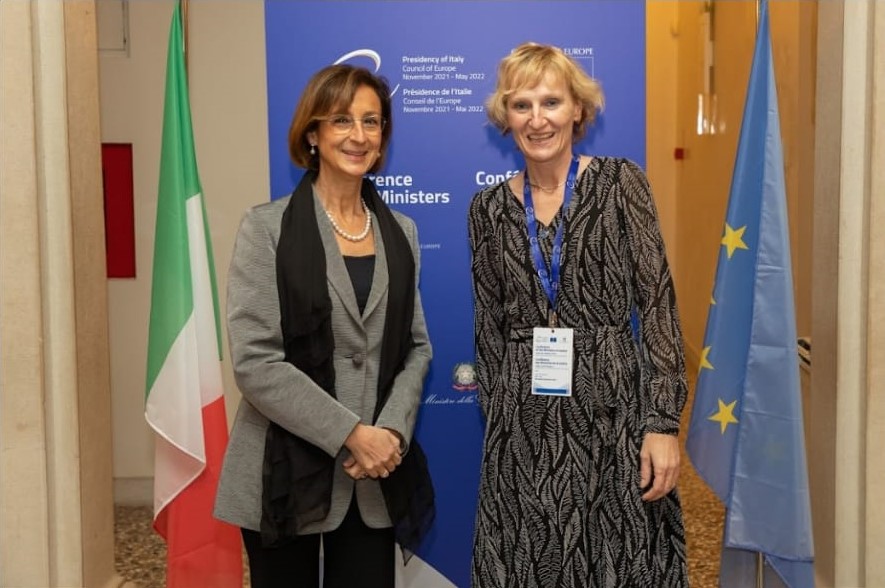Monday is a typical first working day. Everyone is relaxed after the weekend and ready to catch up with the rest of the last week´s to-do list to start a brand new week. I am welcomed by the cold dark corridor of the building where our Service Centre is situated. I unlock the office door and think about what a lovely summer day it is ahead of us. Unfortunately, my Monday schedule is too busy.
I turn on the coffee machine and my computer – two irreplaceable working tools. While sitting behind the table I take out the case files from the drawer and try to recall where we were on Friday with my agenda. I answer my emails and do a final check-up of the report which needs to be sent to the court.
At 9 a.m. I receive the first phone call. It is from a client who didn’t want to cooperate with us last week. To clarify, when I first contacted him, he told me he was on his way to the hospital with his 88 years old mother. “It will either end well or not. I will get back to you later”, he said. He has been charged with not paying the child maintenance.
“Good morning. My mother passed away. But I would like to solve my case. I hope you can help me with that”, he said. I start explaining the whole procedure – how to fulfil the obligation for imposement of the alternative sentence instead of the sentence of imprisonment. He agrees on further cooperation.
My phone starts ringing again. I can recognize the voice of my youth client. He is under probation supervision. “Hello. It is Honza speaking. I need to come for the consultation. It is important”, said the person on the phone. I agree to it. I have a 30-minute time slot.
Honza – 17 yo, student – has been under supervision for 3 years. When he was 14 yo, he broke into an empty house with his friends just to have a cigarette there. Cigarettes, matches, straw…A very simple equation. Result? Fire and damage caused in the amount of several hundred thousand Czech crowns.
Honza came to the office together with his friend. “Can he stay with me?”, he asks. “Sure, just sit down and tell me what happened”, I responded. “I was thinking I need to be the first to inform you. You will still get to know but…”.
I am giving a nod thinking he is definitely in trouble. Honza starts explaining and said, “I have managed to improve my grades so I can continue studying”. The first reaction in my head is, “hurray”. I just hope that what he needs to tell me is not so bad…the greatest risk for these young adults is if they drop off school before they turn 18. They cannot find a job then, they have a lot of leisure time and are able to think of and do unbelievable things.
“I wanted to celebrate it. So, I went to the camp at the dam with friends”, he says. A short silence follows. I can imagine in advance…they smoked grass and probably sprayed or stole something or beaten someone…it is just an assumption for now. What really happened? They bought drugs (allegedly LSD) and tried them. Honza went so crazy that in the end his friends called an ambulance and police. We discuss the next steps and arrange another meeting soon.
After lunch, we leave the Service Centre. It is time to make home visits to our clients and meet a service centre provider.
Pavel is another of my youth clients. He was a part of the group that had committed a series of thefts. He spent a few days in custody and the court imposed him under probation supervision. He awaits us at his home together with his parents. I am talking with his mother who is convinced that the custody had a major impact on Pavel and he actually learnt his lesson. He has a girlfriend, started studying again, helps his father at the company. It is good news.
The next stop is with the community service provider. Another good news. Our client successfully completed the community service sentence. An unplanned stop on our way back with a client who did not show up for the consultation. No one opens the door.
Back at the Service Centre, there is Lukas waiting for me in front of my office. He did not show up for the last consultation. “Hello. I would like to apologize. Do you have a minute, please?” I only have 5 minutes. “I am just on my way from the court as I was just released from custody. They issued an arrest warrant”. He is more skinny, nervous and there is a tic in his eye. He probably takes drugs again… “Do you want to take a test?”, I ask. Drug testing was not a part of the court decision so I can only take it with his approval. “It makes no sense. I partied on Saturday and took any drug I could”, he replies.
“So you spent the night in custody. How was it?”, I ask. “Well, good bed, bedsheet…(tic in his eye)… bread and tea for breakfast and lunch…(tic in his eye)…I have to stop it. I already did so in the past. I had a girlfriend then. Now I will probably need some help from a psychologist”.
I look for a business card of the psychologist we cooperate with. Thank God we have her. “Are you really sure you will manage it…”, I ask. “Yes, I must manage”, he replies. “I would rather go for a drug detox”, I quickly reply. “I mean it”, he says…
Busy working Monday is nearing its end. I turn off the PC, close my desk and the office. I try to absorb the day…how will this continue? We will see tomorrow.
This article has vbeen published on www.cep-probation.org.




